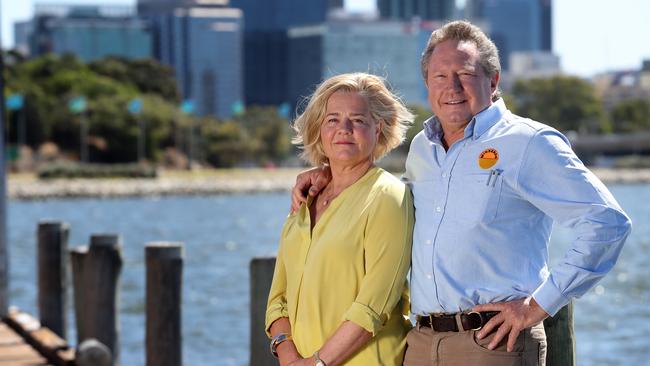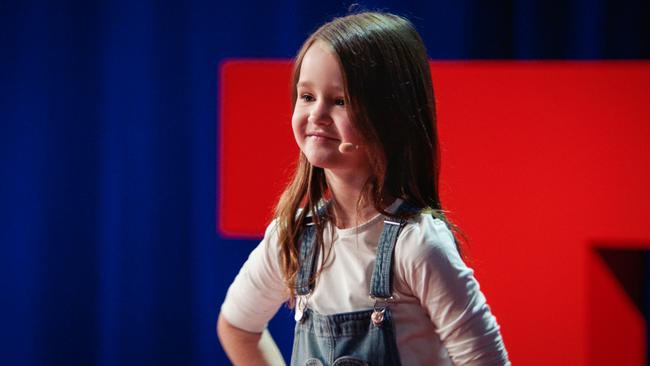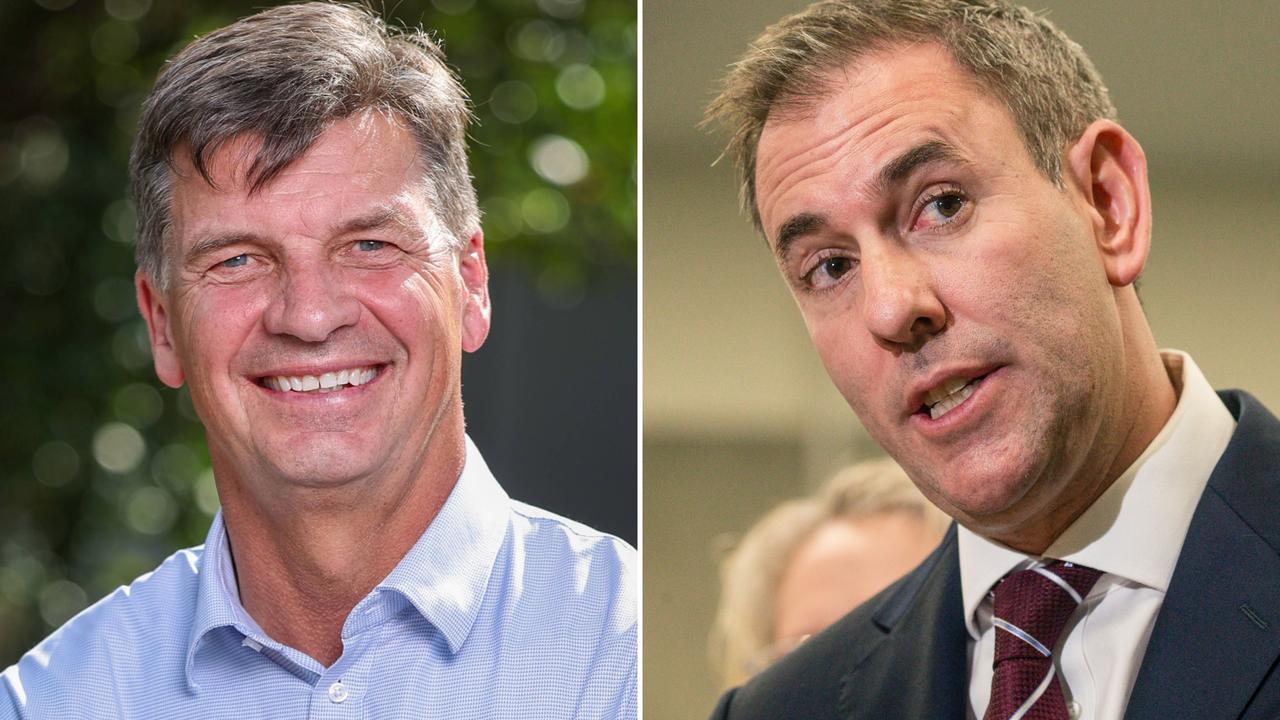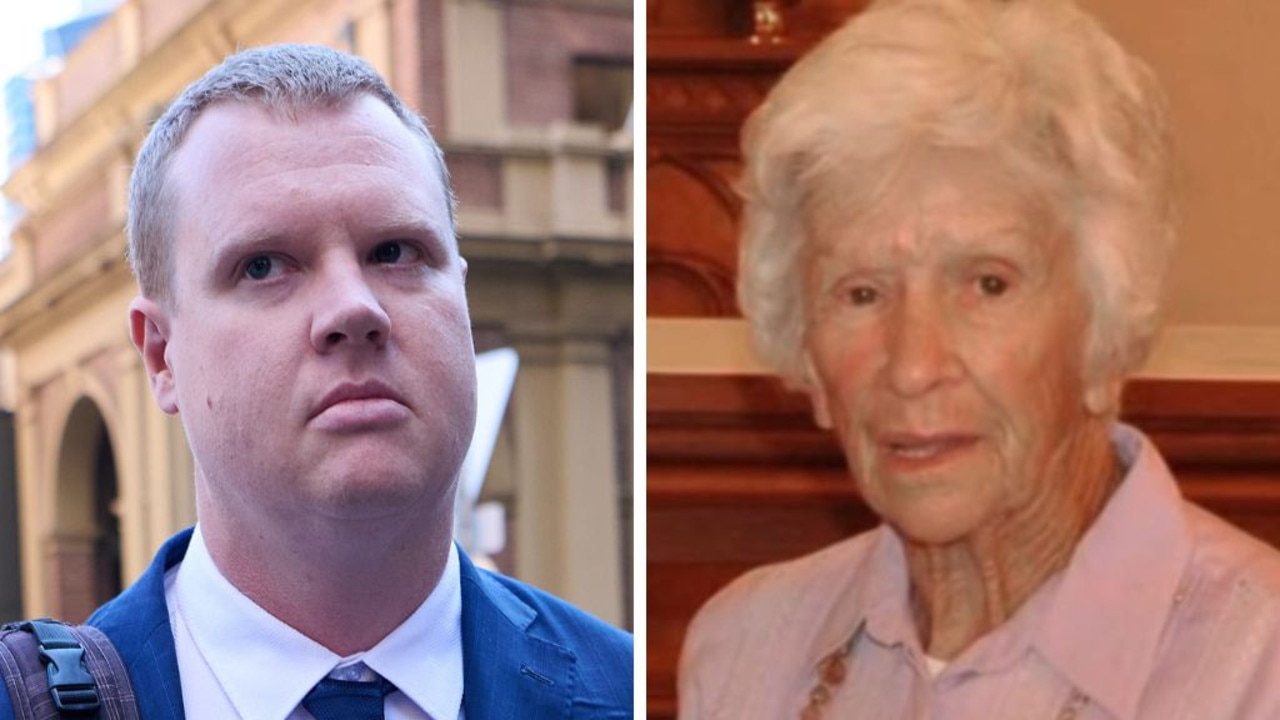Australia’s childcare system needs reform as parents hit with rebate bills during lockdown
Thousands of Aussie families recently received bills for overpaid childcare rebate in the midst of Covid lockdowns, job losses and financial uncertainty, with parents once again calling for the system to be universally available.

NSW
Don't miss out on the headlines from NSW. Followed categories will be added to My News.
Jonica Williams is proof the Australian childcare system is broken.
Last week, just as she and her husband lost their income due to Covid lockdowns, she got a childcare rebate bill of close to $7000 which dated back to 2018 for sons Jonty and Henry, both four.
“I was absolutely shocked – we had just called the bank to put our mortgages on hold, again, and were desperately trying to work out how we would be putting food on the table for our four kids,” the Central Coast mum told Saturday Extra.
“It was so stressful to then get an unexpected bill from so long ago – it’s keeping me up at night.”

Thousands of Australian families just like the Williams’ have recently received bills for overpaid childcare rebate right in the midst of Covid lockdowns, job losses and financial uncertainty.
This week, the bills have since been “paused” in locked down areas of NSW — but for most, the shock of the bills means the damage has been done.
According to Services Australia, if you’re in a Covid lockdown area and get a debt letter, you don’t have to do anything. And if parents had a pre-Covid debt, repayments can be paused for three months if arranged with the authority.
Services Australia general manager Hank Jongen said the organisation balances family payments, including the Child Care Subsidy, at the end of each financial year.
“This process occurs when families lodge their tax return or otherwise confirm their income,” he said.
“Families have two years to confirm their income, this is why some of these overpayments date back a number of years. If they have not done this within two years, a debt may be raised.
“We know many people are still doing it tough and Services Australia is sensitive to the challenging circumstances people face, including those impacted by the current lockdowns.”
He said people with a Centrelink debt who are experiencing financial hardship could contact Services Australia to arrange flexible repayments suited to their situation.
Announcing the debt raising and recovery pause on Tuesday, Government Services Minister Linda Reynolds said the pause would continue for the entirety of the current lockdown, as well as any future lockdowns around the country, saying they understood families were “doing it tough”.
While the pause is welcomed, there is no doubt many families will continue to struggle as pandemic cases continue to rise. The cost of childcare just adds to the stress, because by all accounts, Australia’s childcare system and rebate is confusing, expensive, and often unattainable.
Like many, the waitlist for the daycare centre Williams’ children go to is a year long. If she pulls her boys out now to save money, she’ll lose her spot and won’t get it back when she needs it.
“So do I try and save more debts mounting now and try and future proof – or just cut my losses?” Williams said.
“It’s such a hard position to be in.
“So much extra pressure but if the government gave those who have put their jobs or businesses on hold free childcare again – that would honestly help so many families.
“They need to do something and it needs to be done now.”
During last year’s lockdown, Williams and her husband, a cameraman, both lost their jobs, put their mortgage on hold for a year, and dipped into their super to cover incoming bills.
“It’s been so tough trying to keep our house and our heads above water,” said the mother of four children aged from 13 to two, including an adopted four-year-old.
“So far, this lockdown, we haven’t received any government support financially, either because we haven’t been eligible or we haven’t been processed yet so we don’t know the outcomes.
“That’s six weeks with no money coming in – but plenty going out.
“My husband’s work has almost all been postponed and we own a little ice cream shop that’s been closed since lockdown. We don’t have any income.

“I know families on maternity leave, with husbands being stood down, slugged with up to $20,000 childcare bills dating as far back as 2013.”
Nicola Forrest is someone with a lot to say about the need for reform in Australia’s childcare system.
She and her mining magnate husband, Andrew Forrest, are the founders of the Minderoo Foundation. One of Australasia’s largest philanthropic organisations, it runs the Thrive By Five initiative, which campaigns to make early learning childcare universally accessible.
“I think part of the problem is we call it a system – it’s actually fractured and not really working as a system at all,” Nicola Forrest told Saturday Extra.
“We’ve got (federal) government involved in the first few years of education, then we’ve got the states (running primary and high school education), and then we got back to universities being federally funded.
“We’ve got good maternal health here in Australia – children are born, they come into this world and then we kind of let things go for four years and expect them to come into kindergarten ready to go.
“If you look at the OECD, we are way behind in Australia. Our outcomes are bad.
“So for me, it’s not just about giving parents and teachers support when they need it, it’s about giving children the best start in life, and also allowing those parents who want to go back into the workforce to do that, without feeling guilty and knowing their child is getting everything they need when they are there.”
In some areas of NSW, childcare can cost up to $200 a day, forcing children to stay home – and their parents out of the workforce.

Forrest said free childcare during Covid outbreaks last year saw many new families take advantage of care for children who otherwise wouldn’t have had access to it.
“Covid has given us the opportunity to leverage what happened there and when childcare was suddenly made available to everyone, families came and took advantage of that who had never used it before,” she said.
“Having universal access raises the tide for everyone. It stops it from being stigmatised and it actually makes complete sense that it’s available for everyone.
“It’s that social and emotional regulation too.
“I was talking to one of my oldest friends who has been in education for 40 years teaching and she said ‘I can’t work in the classroom anymore’. Teachers are being social workers – our education system, particularly in primary schools, is social work.
“It’s managing children’s behaviour, rather than educating them.
“So it’s disempowering for teachers and we are not getting the outcomes and we are falling behind.”
A new Thrive By Five campaign – the world’s youngest TED Talk, by Brisbane seven-year-old Molly Wright – has already attracted 1.2 million views, reaching 77 million people on social media since launching last month.
Molly’s ‘Tiny TED’ is on track to become one of the most popular in history.
Forrest said the talk, which focuses on the importance of interaction with children in their first five years, is helping drive desperately needed awareness of its importance.
“It has really helped give a united voice to this issue and I think that has had a lot of traction, including in the latest federal budget (which announced an extra $1.7 billion five-year spend for child care, and $1.6 billion for universal preschool access).”

Forrest said that was a first step, but a step in the right direction.
“Ultimately, what we are trying to do is put the most important information into the hands of parents, because at the end of the day, all parents want the best for their children.
“So if you can give them that information, they are really going to do whatever they can to get that. That helps drive policy chance and business change within our country.
“It is a message for everyone, and I encourage all parents and caregivers to watch the talk and think about their interactions with children.
“Science tells us that the volume of a child’s brain has reached 90 per cent by the age of five so we want to help set parents up for success and increase awareness of the importance of having positive interactions with children – early and often.
“Molly beautifully delivers this universal truth – that the early years are the most critical period for shaping a child’s life now, and in their future.”
Forrest, who has been passionate about early education since raising her own three children, said gaps in the system were highlighted when a 12-year-old foster child came to live with the Forrest family.
“He had (positive) school reports in the public system because he had 95 per cent attendance and they said he was a good kid. We were putting him into Year 7, straight into high school, and the school said ‘we need to assess him’,” she said.
“When we did, his literacy and numeracy was at Year 1 level. He had fine reports because he didn’t muck up in class.
“One of the biggest supporters of our campaign are teachers … because they are up against the wall where they are being blamed for the kids’ outcomes, yet they are not being given the materials (that are) so easy to mould because they haven’t been given the right start in the first five years.
“It has the potential to change lives.”
More Coverage
Originally published as Australia’s childcare system needs reform as parents hit with rebate bills during lockdown





